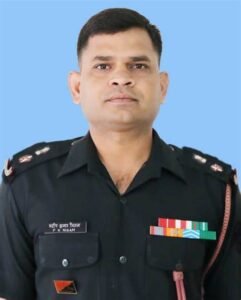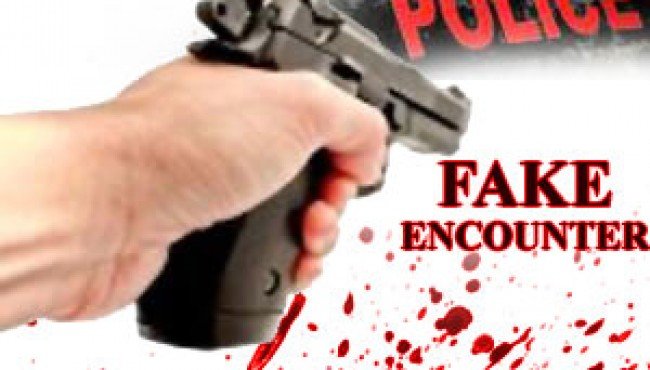The alleged victims, including a former Nagaland military officer, were killed in what was originally reported as a shootout but later deemed extrajudicial.
BY PC Bureau
June 5, 2025 — A Sessions Court in Imphal West has officially framed charges against four Manipur police commandos for their alleged involvement in a staged encounter that left four individuals dead and one injured nearly 27 years ago. The encounter, which occurred on August 29, 1998, along the Imphal Airport road, has long been the subject of scrutiny, protests, and judicial review.
According to the original police account, a team of Imphal West police commandos was conducting an operation in the Kwakeithel area of Imphal to track down suspected underground militants. Then Sub-Inspector Thokchom Krishnatombi, who led the team, filed an FIR at Singjamei police station stating that a suspicious vehicle sped away and its occupants opened fire at the commandos. In response, the commandos returned fire, killing four individuals on the spot and injuring a fifth.
Police claimed to have recovered two AK-47 rifles with loaded magazines and an empty magazine from the vehicle, bolstering the narrative of an armed confrontation. However, doubts were raised immediately by civil society groups and human rights activists, who alleged that the operation was a cold-blooded execution.
 READ: Mahua Moitra, Pinaki Misra Wed in Berlin in Private Affair
READ: Mahua Moitra, Pinaki Misra Wed in Berlin in Private Affair
The victims of the encounter were later identified as:
Major S. Shaiza, a former Naga army officer and well-known public figure
Rukhoshele
Tosovchu Chakhesang
Kikheto Sema
H. Budha
The lone survivor was Thenucho, a respected politician who later served as Speaker of the Nagaland Legislative Assembly. He sustained a bullet wound during the incident, lending critical testimony to the claim that the encounter was staged.
Independent Investigations
Following years of legal battles and petitions by family members and human rights groups, the Supreme Court ordered an independent probe by the Central Bureau of Investigation (CBI). The CBI formed a Special Investigation Team (SIT), and the National Human Rights Commission (NHRC) also initiated its own inquiry. Both investigations relied heavily on the findings of the Justice C. Upendra Commission of Inquiry, which had earlier examined the case.
The NHRC’s probe dismissed the police version, stating that there was no credible evidence to suggest the victims initiated a firefight. Instead, it found that the deceased were most likely taken into custody and summarily executed. The recovery of weapons was also questioned, as forensic evidence failed to link the arms to the alleged firing.
 READ: Lt Colonel Vanishes During Morning Walk in MP, Search on
READ: Lt Colonel Vanishes During Morning Walk in MP, Search on
Charges Framed
On Wednesday, the Court of Session Judge framed charges under relevant sections of the Indian Penal Code against:
Thokchom Krishnatombi, then Sub-Inspector, Tabungkhok Makha Leikai
Khundongbam Inaobi, then Constable, Minuthong Kabo Leikai
Thangkhongam Lungdim, then Constable, G. Songgel village
Md Akhtar Hussain, then Constable, Yairipok Tulihal Konjil Leikai
These charges include serious offences like murder, attempt to murder, and destruction of evidence, among others. The trial is expected to begin in the coming weeks.
Government’s Refusal on Sanction
In a controversial move, the Home Department of the Manipur government refused to grant prosecution sanction against four additional personnel — Nongmaithem Rameshwor, Baremon Khamjai, Khundrakpam Ranjeet, and Leitanthem Sharat — all of whom were then serving as Imphal West commandos. As per legal procedure, trials cannot proceed without such sanction in cases involving government officials, effectively halting proceedings against them.
The case stands out as one of the few from Manipur’s decades-long conflict involving security forces that has reached the trial stage. Human rights watchdogs have often accused security forces of operating with impunity under the Armed Forces (Special Powers) Act, or AFSPA. The current development is being closely watched by rights groups and legal experts as a potential test case for accountability in conflict zones.














